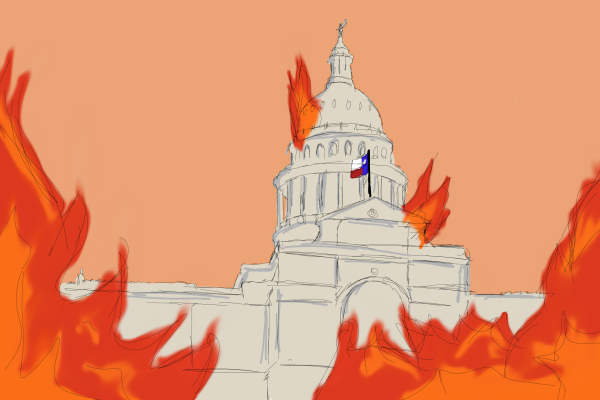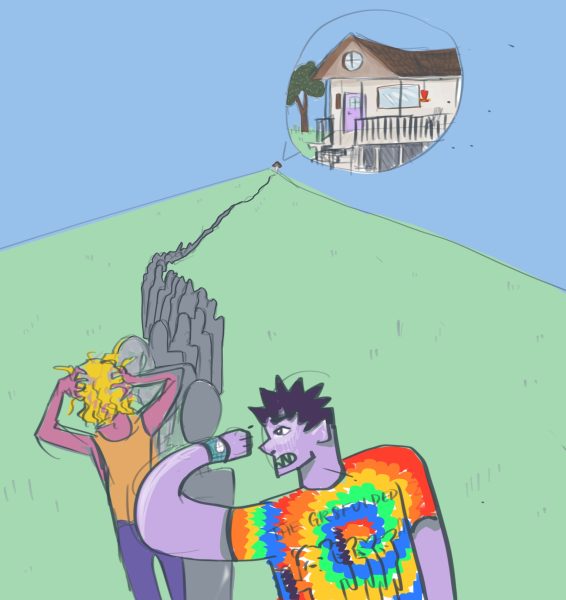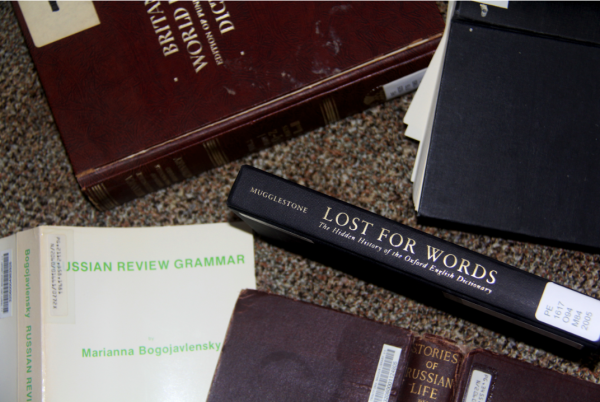Astrology: More than a white-washed trend
Aesthetics have selectively separated culture from pop trends
Growing up as a person of color in a mostly white setting, especially when you don’t practice Christianity, is to grow up doubting yourself. From elementary school, I remember being told that my religion, Hinduism, was fake, that my food was weird, and — on one occasion — that I was going to hell because I didn’t believe in Christianity. I didn’t want to go to the temple, I didn’t want to take my mom’s Indian food to school, and I didn’t want to be associated in any way with this culture that made me “other.”
It’s something that I have had to grow from, learning to surround myself with people who wouldn’t criticize me or make me doubt things that were fundamentally me. It took years for me to see Hinduism as what it is, rather than this thing to be ashamed of, which is why it is so strange seeing those same people who dismissed my religion and spirituality as nonsense become so invested in astrology.
Astrology is just the latest in the list of South Asian traditions that have become popularized in America recently. Along with chai tea lattes, golden milk and other ayurvedic medicines, astrology has turned from something associated strongly with South Asian identity and culture to a trend with white women leading the charge. White women are able to claim being spiritual without much backlash, while people of color in white settings continue to feel estranged from their religions. People want the aesthetic without the actual understanding of the culture that surrounds astrology or the issues ingrained in it. They want to talk about sun signs and star signs and judge people based on their chart without thinking about the spiritual significance it all has in so many non-Abrahamic religions.
Then when people say “astrology is stupid” or that they “can’t believe anyone thinks it’s real,” it disguises an attack on cultures and religions that have been dismissed in America since colonizers first set foot on the land as a personal preference on popular culture. People get to dismiss astrology by claiming that it’s unscientific and unreasonable, and they simply cannot believe in it when it’s a “harmful pseudoscience” without understanding that those beliefs are the very same ones used to dismiss Hindu and Indigenous spiritual traditions. The same beliefs that made me grow up doubting my religion and culture.
This leads to the white women who have popularized astrology taking the critique and claiming it just stems from misogyny and that to practice astrology, then, is feminist. Looking at criticism of astrology as just anti-feminist is a prime example of white feminism, where the aspect of the issue that affects communities of color is ignored in favor of a facile take that only uplifts a small subsection of white, wealthy women. Criticism of astrology isn’t just misogynistic, it also comes from a sense of white/Christian supremacy that never seems to go away in the United States. Divesting astrology from South Asian identity also allows for statements that paint Hinduism and other non-Abrahamic religions as “primitive” to go by almost unnoticed.
The same can be said for things such as turmeric milk (popularized as golden milk) and yoga. These methods that have been used for thousands of years are now part of the wave of gentrifying mental health, and because they are so popular they are also the subject of much criticism. Valid criticism about ignoring scientific medicine in favor of following a billion-dollar industry is compounded with racist ridicule of a religion and culture that has existed for centuries. It is possible to criticize how ayurvedic medicine and astrology are capitalized on without claiming that Hinduism is false, and yet so few people seem to do it.
Of course, none of this is to say that everyone needs to stop engaging in astrology. It is something interesting and fun to explore, and it’s still nice to see aspects of South Asian culture getting bigger in America. As they get popular, things such as yoga, astrology and other spiritual practices should become more accessible across the country. It could allow not only for different groups of people to learn about the benefits of yoga and golden milk but also for kids growing up Hindu in America to feel more comfortable in their culture, yet they seem to only really spread to elite circles. Yoga specifically has become capitalized into a cure-all for your troubles (but only if you have the money to drop on classes and equipment).
In the end, kids feel even more disconnected from their culture as the more attractive aspects have been co-opted away from them and turned into something for white girls to turn into an aesthetic. Recognition of where these practices come from would go a long way: it would provide awareness of why claiming only the aesthetically pleasing aspects of a culture can be so damaging and why criticizing astrology so ruthlessly isn’t necessarily a personal preference. A little more appreciation and a little less gentrification would go a long way in combating the damage of white-washing of Hinduism

My name is Ashwini Vivek (she/her) and I am an Opinion Writer for the Trinitonian! I am a senior Neuroscience major from Dallas, and I'm also involved...











shani mack • May 6, 2024 at 8:24 am
amazing!